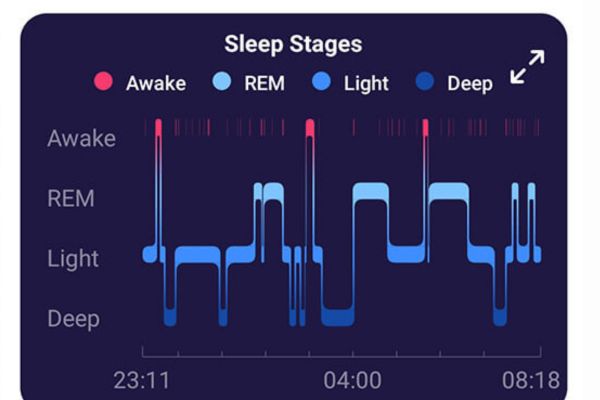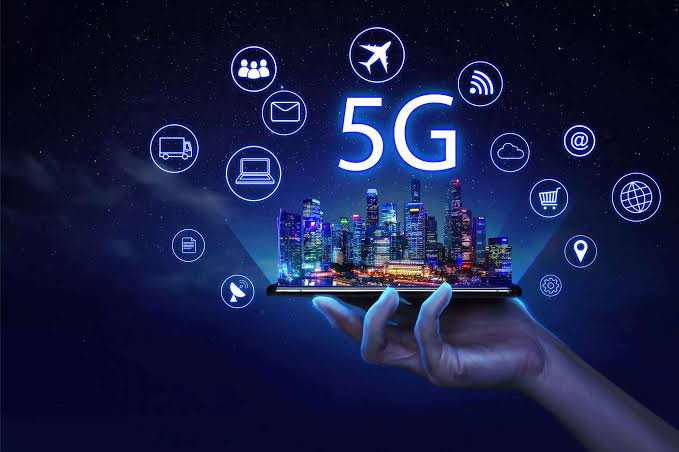Introduction:
- The world of smartwatches is brimming with options, but two giants consistently stand out: the Apple Watch Series 9 and the Samsung Galaxy Watch 6. In this blog, we’ll dissect their features and functionalities to help you make an informed decision.
Comparison Table
| Specification | Apple Watch Series 9 | Samsung Galaxy Watch 6 |
|---|---|---|
| Design | Rectangular | Round |
| Size Options | 41mm, 45mm | 40mm, 44mm |
| Display Material | Toughened Glass | Sapphire Glass (Base Model) |
| Band Swap System | Traditional | One-Click Bands |
| Operating System | watchOS 10 | Wear OS 4 (by Google) |
| Notable Features | Heart Rate Monitoring, Workout Tracking, Sleep Tracking, Blood Oxygen Measurements, ECG Function | Same Features as Apple Watch |
| Sleep Tracking Accuracy | More accurate for deep sleep | Tracks naps (Not available on Apple Watch) |
| Heart Rate Tracking | Gold standard accuracy | Some discrepancies in measurements |
| Battery Life | Approximately 30 hours | Approximately 30 hours |
| Battery Sizes | Varies with model (e.g., 41mm – 282mAh, 45mm – 308mAh) | Varies with model (e.g., 40mm – 300mAh, 44mm – 425mAh) |
| Price Range | Starting at $400 (Aluminum), Higher for Stainless Steel with Sapphire Glass | Starting at $300 (Base Model) |
| Cellular Connectivity | Available | Available |
Design & Sizes:

Apple Watch Series 9: A rectangular design that’s iconic in the smartwatch world.
Samsung Galaxy Watch 6: A sleek and stylish round face design.
Both watches are available in two size options: 41mm and 45mm for Apple Watch, and 40mm and 44mm for Galaxy Watch 6.
Apple Watch Series 9 comes with toughened glass, but you need the pricier stainless steel model for sapphire glass. Galaxy Watch 6 impresses with sapphire glass on both the front and back in its base model.
Band Swap System:

Apple Watch Series 9: Uses a traditional band swap system, which is familiar to Apple Watch users.
Samsung Galaxy Watch 6: Introduces one-click bands, a more convenient and faster way to swap bands. It also retains compatibility with straps using spring bars.
Operating System:

Apple Watch Series 9: Runs on watchOS 10, Apple’s proprietary operating system.
Samsung Galaxy Watch 6: Utilizes Wear OS 4, developed by Google.
Notable Features:

Both smartwatches offer a range of essential features including heart rate monitoring, workout tracking, sleep tracking, blood oxygen measurements, and ECG functionality. These are common ground for both watches, making them capable fitness companions.
Sleep Tracking Accuracy:

Apple Watch Series 9: Excels in accurate deep sleep tracking, offering a more reliable assessment.
Samsung Galaxy Watch 6: Stands out by being able to track naps, a feature not available on the Apple Watch Series 9.
Heart Rate Tracking:

When it comes to heart rate tracking, the Apple Watch Series 9 sets the gold standard, with measurements closely aligning with dedicated chest-mounted heart rate monitors. In contrast, the Samsung Galaxy Watch 6 sometimes lags behind even some smaller competitors, showing discrepancies in its measurements.
Battery Life and Sizes:

Both smartwatches offer a day’s worth of battery life in real-world usage, which means neither can stretch to two days on a single charge.
In terms of battery sizes, they vary with the model: Apple Watch Series 9 ranges from 282mAh in the 41mm model to 308mAh in the 45mm model. For the Galaxy Watch 6, it starts at 300mAh for the 40mm model and goes up to 425mAh for the 44mm model. This results in a significant difference in battery size, favoring the larger Galaxy Watch model for extended use.
Price Range:

The price point is an important factor to consider. The Apple Watch Series 9 starts at $400 for the base Aluminum model, with prices escalating significantly for the Stainless Steel version with sapphire glass, going no less than $700. In contrast, the Samsung Galaxy Watch 6 is the more budget-friendly choice, with the base model starting at just $300.
Cellular Connectivity:

Both watches offer cellular connectivity, making it possible to stay connected on the go.
For Whom is the Apple Watch Series 9 Suitable?

Fitness Enthusiasts: Those who prioritize precise heart rate tracking and sleep monitoring.
Apple Ecosystem Loyalists: Apple ecosystem enthusiasts who want seamless integration with their iOS devices.
App Enthusiasts: Users looking for a refined and extensive selection of apps.
Premium Experience Seekers: Those willing to invest in a premium smartwatch experience and are less budget-conscious.
For Whom is the Samsung Galaxy Watch 6 Suitable?
Budget-Conscious Consumers: Consumers seeking an affordable yet stylish smartwatch option.
Android Users: Android users who value compatibility with their devices.
Balanced Features Seekers: Individuals who appreciate the flexibility of tracking naps and don’t require highly accurate deep sleep monitoring.
Affordable Connectivity: Those looking for cellular connectivity and a decent set of features without breaking the bank.
Conclusion:
The decision between the Apple Watch Series 9 and the Samsung Galaxy Watch 6 hinges on a variety of factors including budget, design preferences, and required features.
If you prioritize precision in heart rate tracking and sleep monitoring, the Apple Watch Series 9 may be the better choice. It seamlessly integrates with the iOS ecosystem and offers a more extensive selection of apps.
On the other hand, if affordability and style are your primary concerns, the Samsung Galaxy Watch 6 presents a compelling option. It’s well-suited for Android users and offers a balanced set of features without breaking the bank.
Ultimately, the choice comes down to your individual needs and preferences. Both watches deliver valuable features and a seamless smartwatch experience in their own right.







